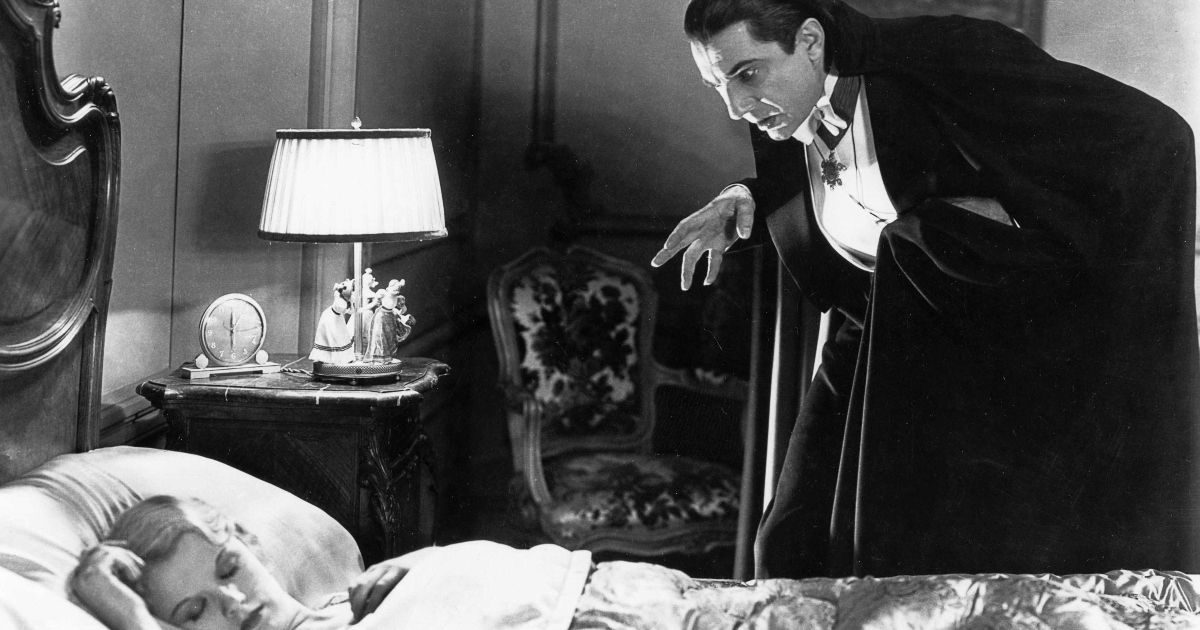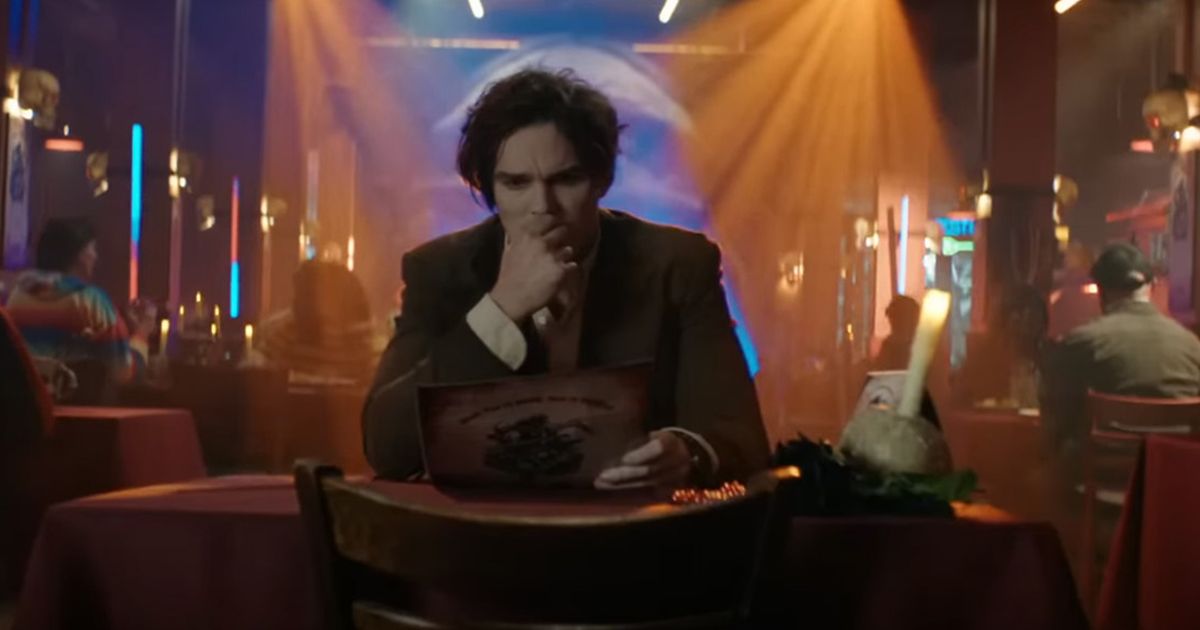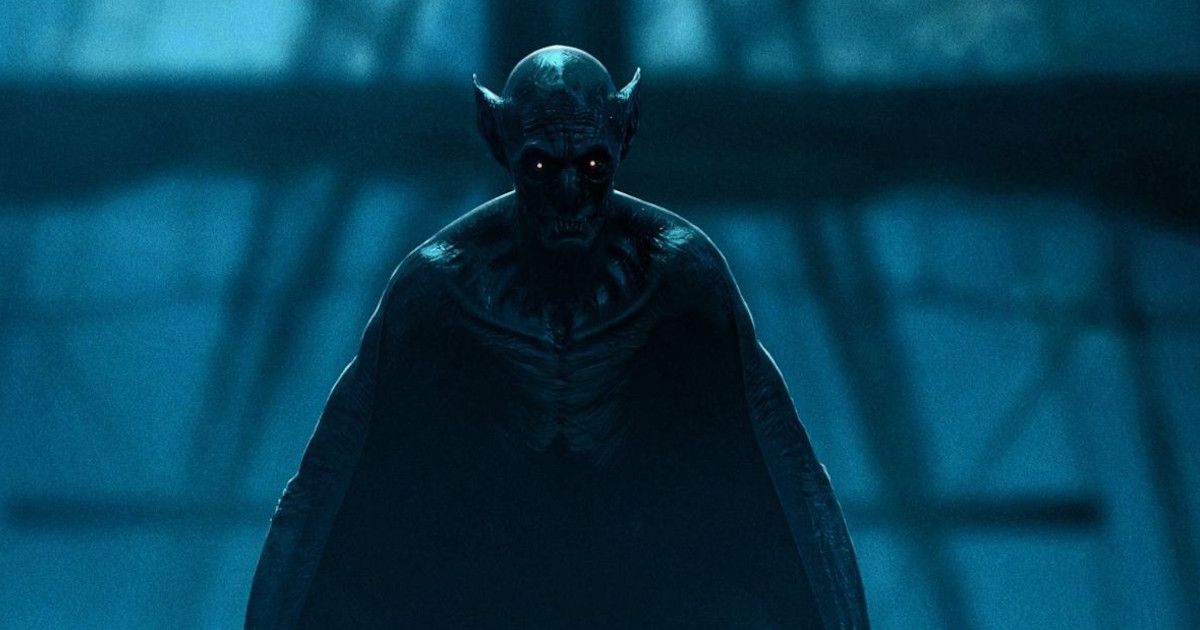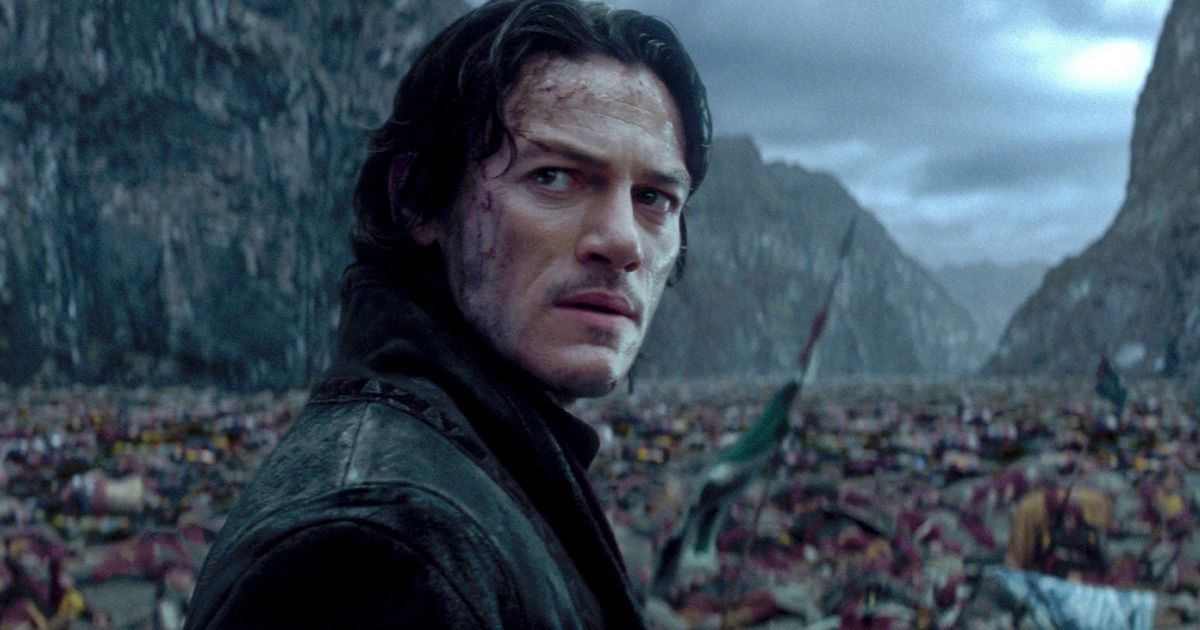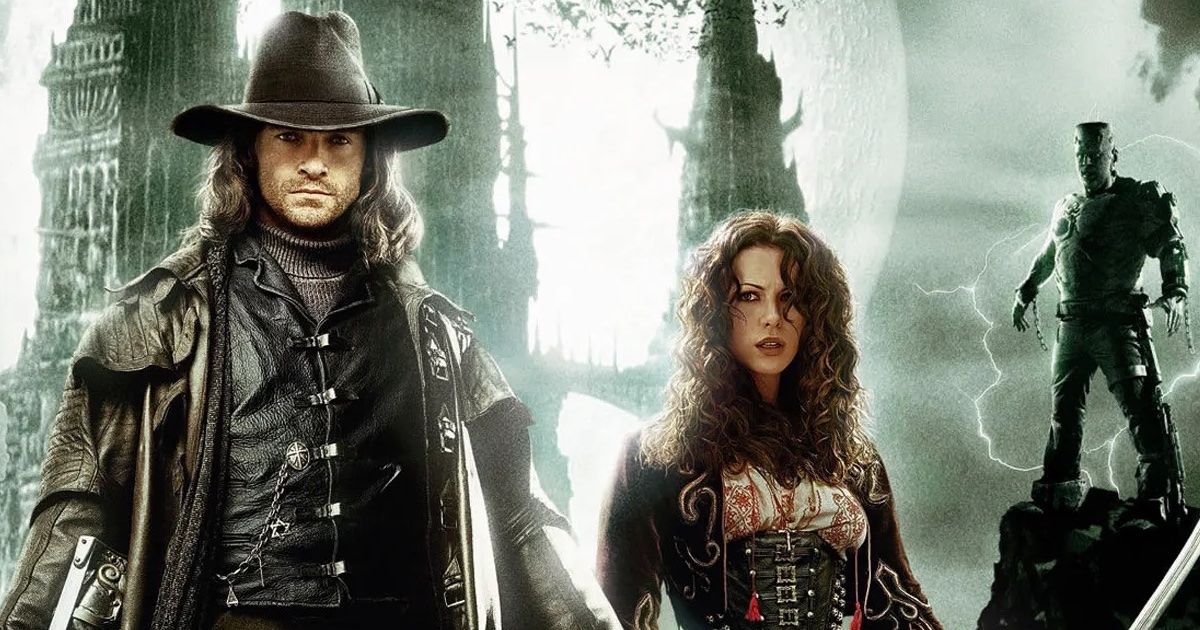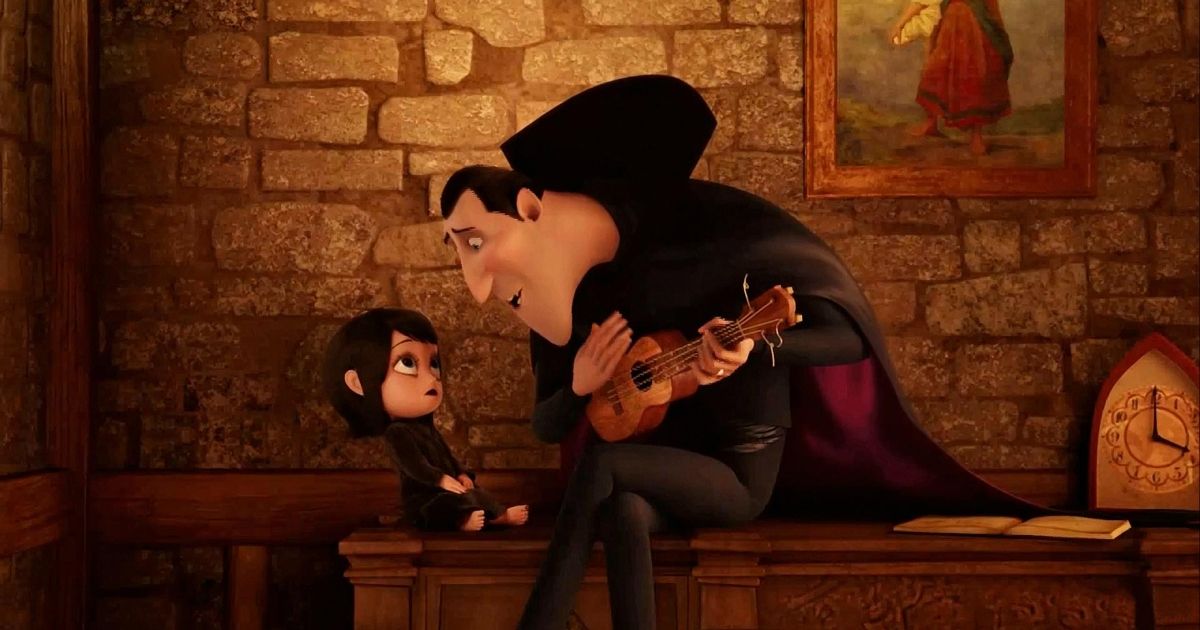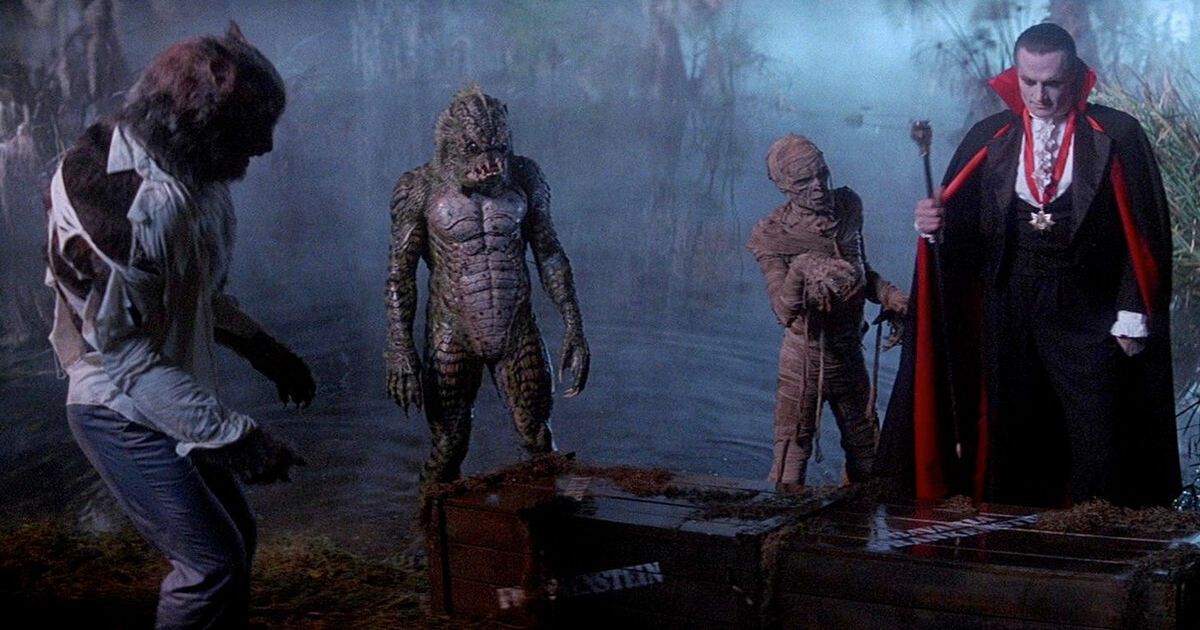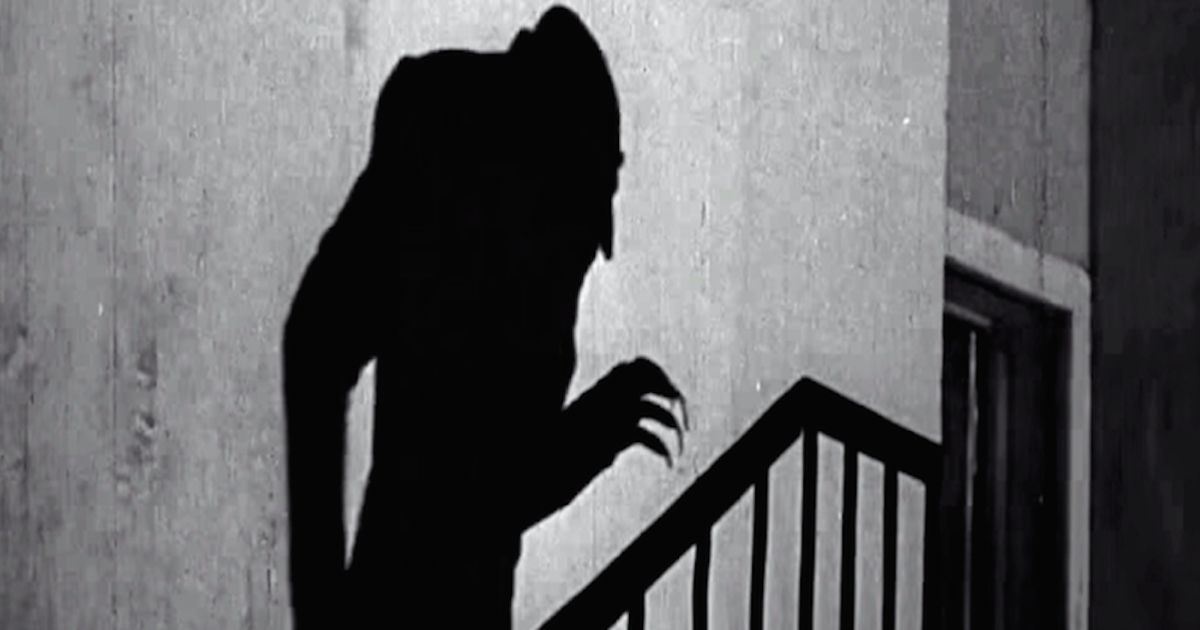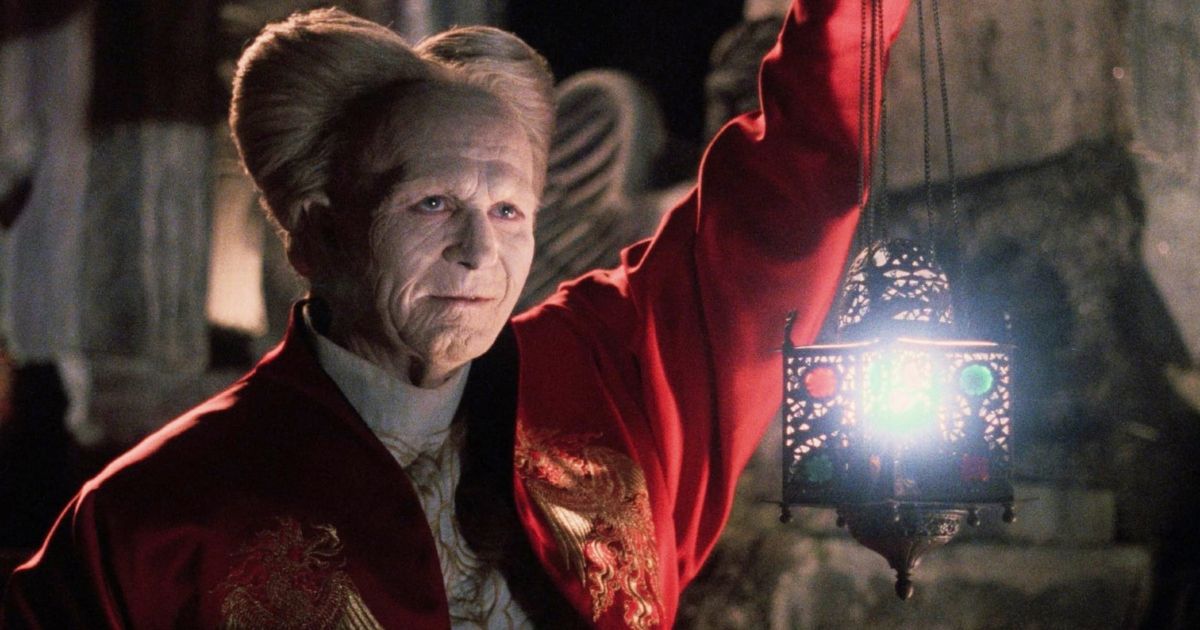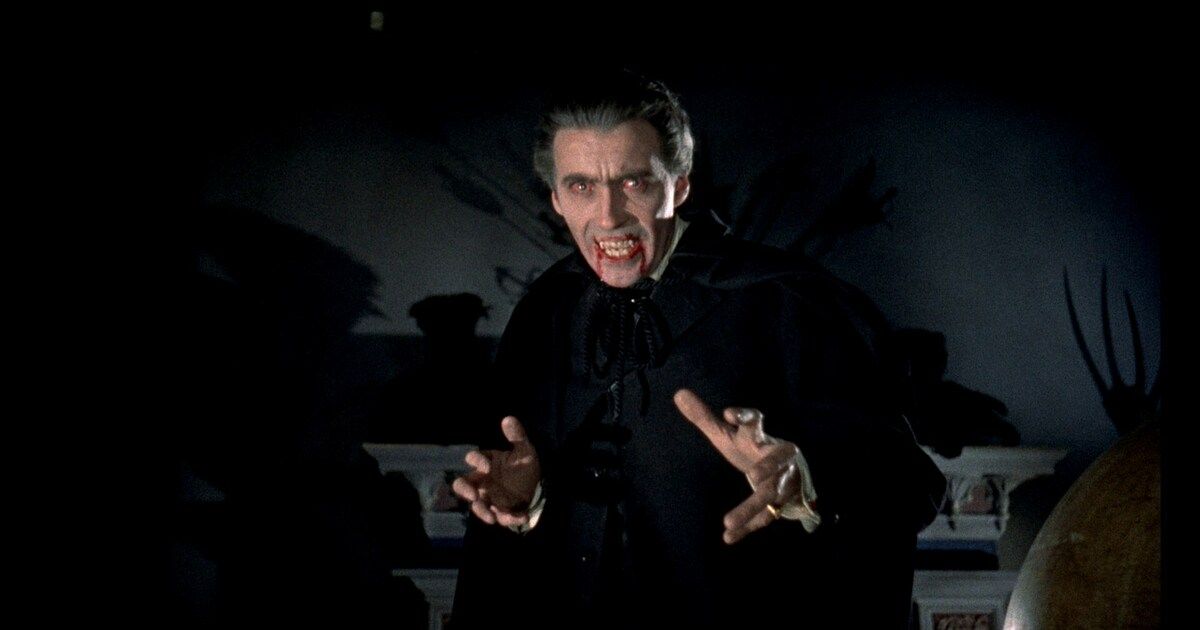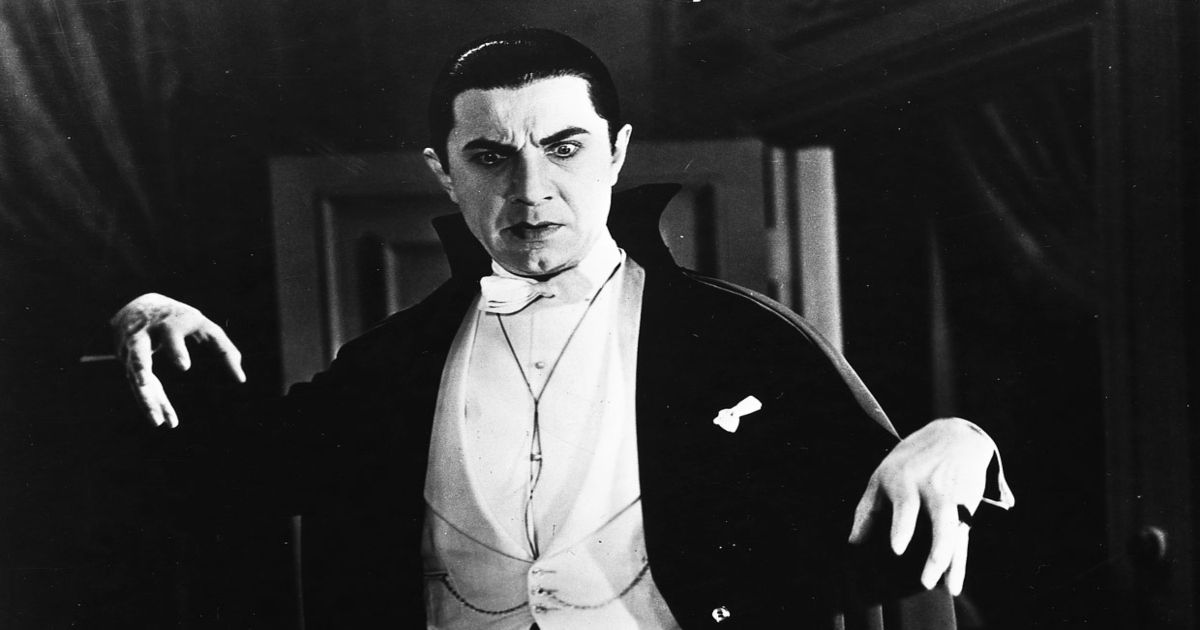Few characters have been reimagined in movies as often as Count Dracula has. Since the author Bram Stoker wrote Dracula’s story in 1897, the blood-sucking creature has been adapted in over 40 ways — and that’s just based on Stoker’s story. That’s not counting the other Dracula media like Van Helsing or even the animated Hotel Transylvania. When it comes to movie monsters, Dracula is a major fan favorite. He’s one of the classic Universal Studios Monsters, among others, including Frankenstein, the Mummy, and the Wolfman.
Update August 15, 2023: In honor of the release of The Last Voyage of the Demeter, this list has been updated by Evan Lewis to include even more great films starring Count Dracula.
Dracula is most often imagined as being a very pale, dark-haired, well-dressed, seductive individual with an air of mystery and danger about him. However, despite the typical image of the most famous vampire, each time he’s portrayed in modern media is often different than the last. Some Draculas are certainly better than others and are much more successful at capturing the essence of the character. Here are the best Dracula films to date.
10 Renfield (2023)
This movie might be named after a character who is not Dracula, but the iconic figure is still centered in the narrative. Renfield is the right-hand man to Dracula in the original novel. The movie expands on this story and details how he is tasked to carefully obtain his master's prey and, basically, everything that is asked of him. Spending century after century without allowance to be his own person, Renfield wonders what it would be like to break the chains that attach the two of them. While the film saw middling reviews, it was noted to be a refreshing take on Dracula and his long-lasting legacy. It also brought more attention to Renfield, who arguably has just as much of a consistent presence as his more well-known counterpart.
9 The Last Voyage of the Demeter (2023)
The Last Voyage of the Demeter is an adaptation of a chapter called "The Captain's Log", from the novel Dracula. The Demeter is a merchant ship, and it is doomed from the start. Soon, the passengers, who expect this to be a routine delivery, will come to know that they are not alone; Dracula lurks in the shadows. It instead becomes a fight for their lives, with none of them sure they will make it.
Along with Reinfeld, this was one of two high-profile Dracula remakes from Universal Pictures in 2023. These two drastically different takes on Dracula in the same year show how the popular story can be reimagined in so many different ways. The Last Voyage of the Demeter is a clever twist on the Dracula story that is often overlooked, and making basically Alien but on a boat and Dracula in place of the Xenomorph is a compelling pitch.
8 Dracula: Untold (2014)
Dracula: Untold is a very different take on the material. Released in 2014 and starring Luke Evans as Dracula, the film is very much a superhero origin story for the popular character, very much in the Batman Begins model. It was intended to be the start of an interconnected universe of new Universal Monster movies to compete with the MCU. This eventually morphed into The Dark Universe and was officially started with 2017's The Mummy, and Dracula: Untold was made no longer part of the plans.
Dracula: Untold is very much a movie of 2014, with many of the hallmarks that defined films in the aftermath of The Avengers and The Dark Knight. Almost ten years removed from its release, it is an interesting time capsule and a moderately entertaining action film with a very different Dracula.
7 Van Helsing (2004)
Before The Voyage of the Demeter, Renfield, and Dracula: Untold, Universal Pictures' first big attempt at reviving Dracula and the wider Universal Monsters brand was in 2004's Van Helsing. The film focused on a younger, more action-hero version of the character originating in Bram Stoker's novel. Dracula himself is the primary villain and one of the strongest versions of the character yet.
Van Helsing failed to launch a franchise the same way The Mummy did, but it is a great look at what action movies in 2004 looked like. It also might be one of the best stories in terms of plot mechanics for how Dracula, Fraknestein's Monster, and The Wolf Man actually fit together in lore and mythology.
6 Hotel Transylvania (2012)
While Hotel Transylvania isn't your typical Dracula movie, it's a cute, fun take on the signature vampire and his monster friends. When monsters need to get away and take a break, they go to Count Dracula's (Adam Sandler) Hotel Transylvania, a human-free resort where monsters can relax and be themselves. Along with Sandler, Hotel Transylvania also features stars including Selena Gomez, Andy Samberg, Kevin James, Fran Drescher, CeeLo Green, David Spade and Steve Buscemi.
Hotel Transylvania's portrayal of Dracula shows him as a nervous, family-oriented business owner — a unique take when compared to any other Dracula media. While the movie is really geared toward kids, it's really not bad and is a good "fun for the whole family" option for movie night. Following its release in 2012, Hotel Transylvania spawned a four-movie franchise, although the first two are the best.
5 The Monster Squad (1987)
Released in 1987, The Monster Squad is about a team of monsters — Frankenstein's monster, The Mummy, Gill-Man, and The Wolf Man — led by Count Dracula (Duncan Regehr) in a pursuit to take over the world. But their plans are halted when they have to battle against a group of outcast teens — dubbed The Monster Squad — who want to stop them from taking over. The Monster Squad is a blend of comedy and horror, and of all the vampire movies from the '80s, it's definitely one of the best.
The Monster Squad has some elements of movies like The Goonies but portrays itself in a fun and unique way that doesn't feel tired and fits perfectly among the backdrop of the 1980s. It's also a great movie for any monster lover as it combines all the classics on one screen but manages to give a little bit of the spotlight to each character. Also, in terms of Dracula's performances, Regehr's is great and often underrated. He captures all the angles of the vampire's personality and presents them in a way that feels like a love letter to the classic horror monster. Unfortunately, The Monster Squad did bomb at the box office, but in the years since, its become a cult classic that's worth the watch for the '80s nostalgia, if nothing else.
4 Nosferatu (1922)
This silent, black and white horror movie premiered in 1922 and 100 years later, is still known as one of the most influential vampire movies of all time. Nosferatu was an unauthorized, unofficial German-made adaptation of Bram Stoker's 1897 novel Dracula. Though names and other details were changed to protect against copyright infringement, Stoker's heirs sued over the adaptation, resulting in an order that all copies of the film be destroyed. However, a few survived, and Nosferatu went on to become an influential masterpiece in the horror genre.
Even though it's a silent film, Nosferatu still manages to be downright creepy. The eerie, gothic vibe, Count Orlock's (Max Schreck) terrifying look and gait, and the haunting music all combine to create a really chilling film that still manages to scare even all these years later. Nosferatu is an important piece of cinema history and whether it's necessary or not, has been the subject of remake conversations with Roger Eggers as director.
3 Bram Stoker's Dracula (1992)
This 1992 adaptation of Stoker's novel features a stellar ensemble cast including Winona Ryder, Keanu Reeves, Anthony Hopkins, and Gary Oldman as Count Dracula, with Francis Ford Coppola in the director's chair. Bram Stoker's Dracula was a box office success and generally well-received by critics for its sultry, gothic feel and unique take on such a well-known character. The movie also went on to win three Academy Awards for Best Costume Design, Sound Editing, and Makeup.
Bram Stoker's Dracula had a significant impact on vampire media in pop culture. It re-imagined Dracula's attire, general tone and demeanor and explored new vampire tropes that hadn't been featured in movies yet, like retractable fangs. It also features more of the romance element that Dracula, or vampire media in general, would later focus on more. Oldman is great as Dracula. He's sinister, creepy, and mysterious and embodies everything people have come to love about the Dracula character over the years.
2 Dracula (1958)
Also called Horrors of Dracula, this adaptation sees Christopher Lee (Sleepy Hollow, The Lord of The Rings: The Fellowship of the Ring) as Count Dracula. Lee's portrayal of Dracula was widely different than Bela Lugosi's role in 1931. Lee featured a fanged creature with blood-red eyes in a plot with more blood and gore than the original, thus presenting a brand-new image of the classic horror character. Lee's portrayal also saw Dracula as a more alluring character, seducing victims with ease.
The 1958 Dracula has become a horror classic and is still well-loved among critics and fans of the genre to this day. This adaptation brought Dracula to life in Technicolor, as opposed to Lugosi's black and white classic, and it makes the snarling, feral images of Drac all the more scary.
1 Dracula (1931)
The 1931 Dracula by Universal Pictures is the first official, sound adaptation of Stoker's novel and features Bela Lugosi in the lead role as the Count. It was really the movie that started it all. It was a major commercial and critical success and led to a slew of spin-offs and new adaptations. Lugosi as Dracula can be credited with establishing the primary image of the character that most people recall today — well-dressed, poised, mysterious, and intriguing, yet dangerous.
Dracula laid the foundation for Universal Pictures to become a leader in early horror films, housing all the heavy hitters like Frankenstein, The Bride of Frankenstein, The Mummy, The Invisible Man and The Wolf Man. For most, Lugosi's Dracula is the Dracula. His performance served as inspiration for future Dracula's, like Lee and Oldman, achieving Lugosi a certain "legend status" in the realm of horror films.

